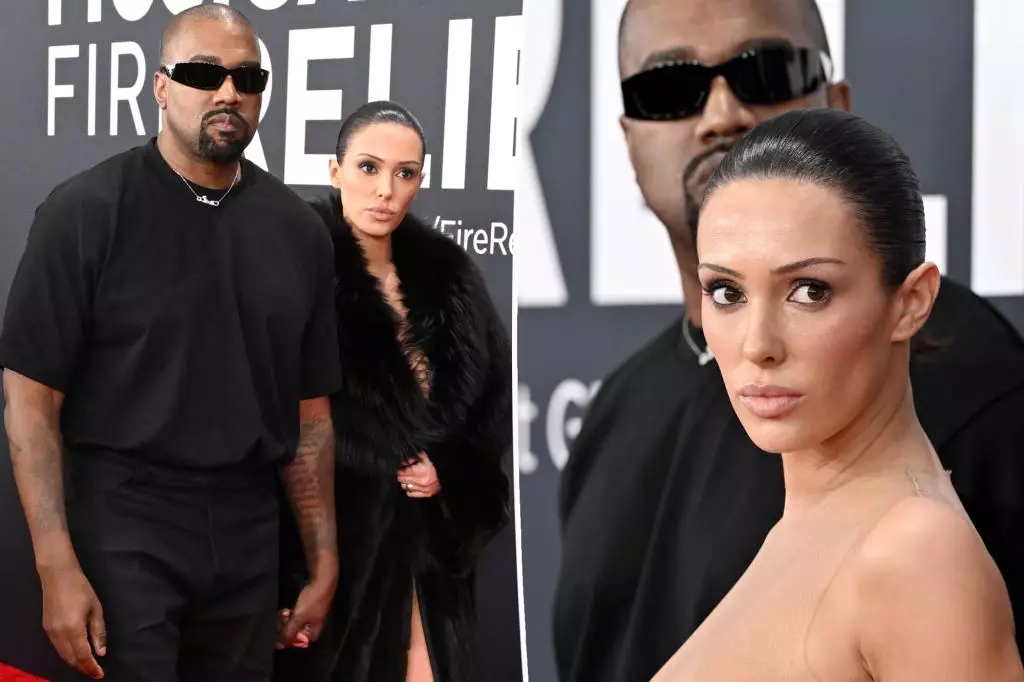Kanye West continues to remain a central figure in the entertainment spotlight, confidently positioning himself as a master of media manipulation and self-promotion. Following a bold and attention-grabbing display at the Grammy Awards by his wife, Bianca Censori, West’s recent interactions with the media underscore his elaborate strategy of using controversy as a means to maintain relevance in a saturated industry.
Bianca Censori’s arrival at the Grammys wearing a transparent dress devoid of traditional undergarments not only garnered immediate attention but also ignited a firestorm of debate about artistic expression versus objectification. As paparazzi caught up with West days later, he happily proclaimed, “We beat the Grammys,” equating the viral moment with a type of victory over the conventional award show. This statement reflects West’s belief that garnering attention—regardless of the nature of that attention—is ultimately a win in the contemporary digital age.
The couple’s synchronized style, bolstered by matching black Prada sunglasses, presented a united front, suggesting that their shock tactics are a deliberate and strategic approach to staying in public consciousness. On social media, West further amplified Censori’s spotlight moment by highlighting her unprecedented Google search interest post-event. His proclamation that, “FOR CLARITY FEBRUARY 4TH 2025 MY WIFE IS THE MOST GOOGLED PERSON ON THE PLANET,” is a testament to his adroit use of virality as a marketing tool, deftly crafting a narrative that elevates both his brand and that of his partner.
However, with such visibility comes backlash. Critics have labeled the display “deeply unsettling,” framing West’s approach as one of dominance rather than empowerment. Photographer Chiara Glionna’s comments capture a sentiment shared by many—questioning the morality behind using a woman’s nudity for personal gain. In the dynamic realm of celebrity culture, where boundaries of artistic expression and ethical behavior often blur, West’s response—ironically, by commenting “Easy win” on an image depicting female nudity—suggests an intentional disregard for the concerned perspectives around gender and body image.
This contentious incident epitomizes a cultural moment where discussions around feminism, artistic freedom, and personal branding collide. West’s and Censori’s behaviors reflect a distillation of modern celebrity culture, where standards of propriety are often traded for clicks and views.
While Censori’s shocking outfit attracted discussion and scrutiny, sources indicated that she would not face legal repercussions for her attire at the event, highlighting the often convoluted relationship between celebrity actions and public accountability. The LAPD’s dismissal of any formal complaints underscores a unique ambiguity within celebrity culture: actions that would be deemed inappropriate elsewhere can be dismissed in the arena of fame as mere performance art.
Kanye West’s narrative—a blend of audacious stunts, calculated self-promotion, and a firm understanding of contemporary digital marketing—positions him as an influential figure steering conversations on celebrity, culture, and the oft-thin line defining artistic expression versus exploitative visuals. For West, maintaining relevance may well mean embracing controversy in its many forms, a testament to the evolving landscape of modern fame.

